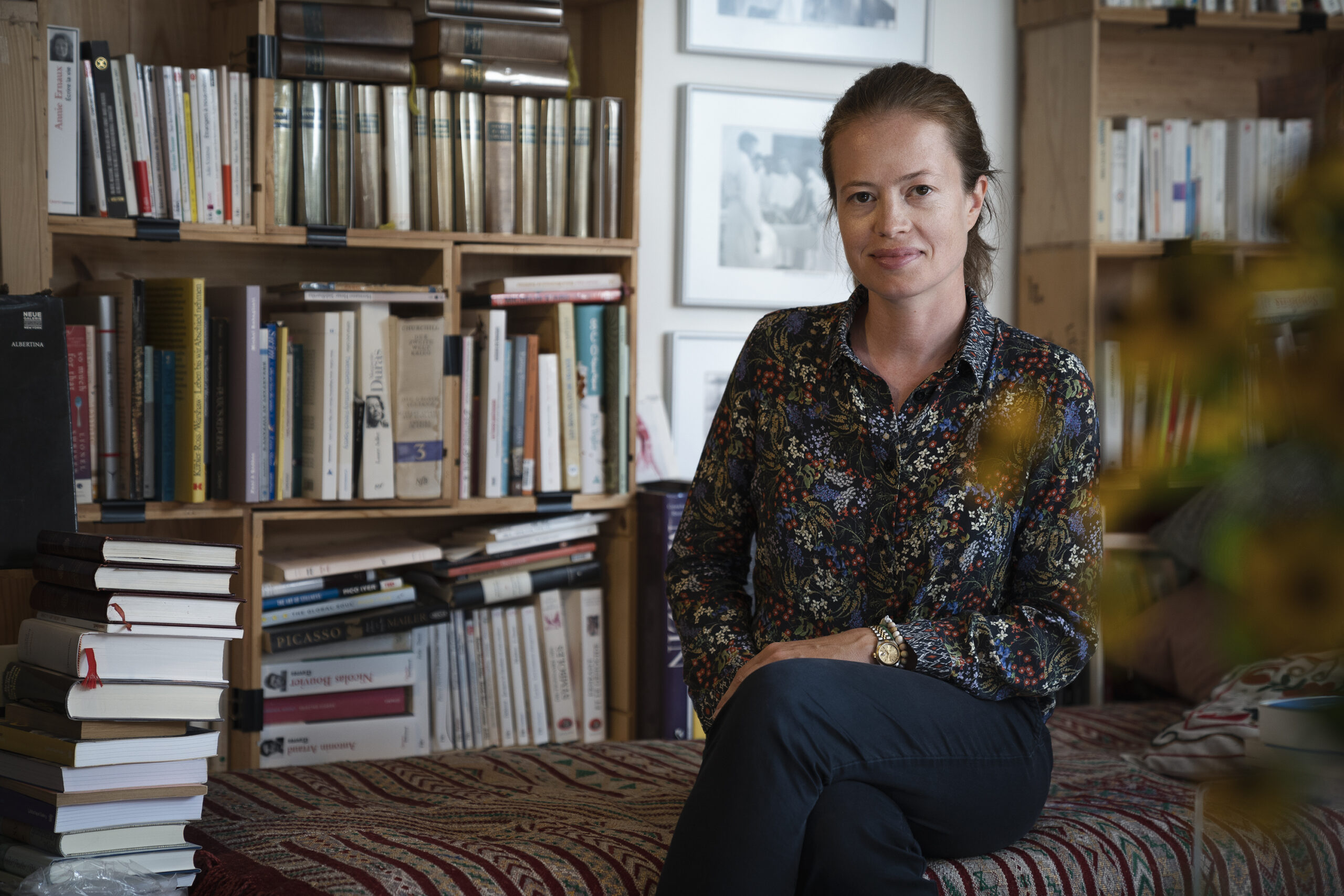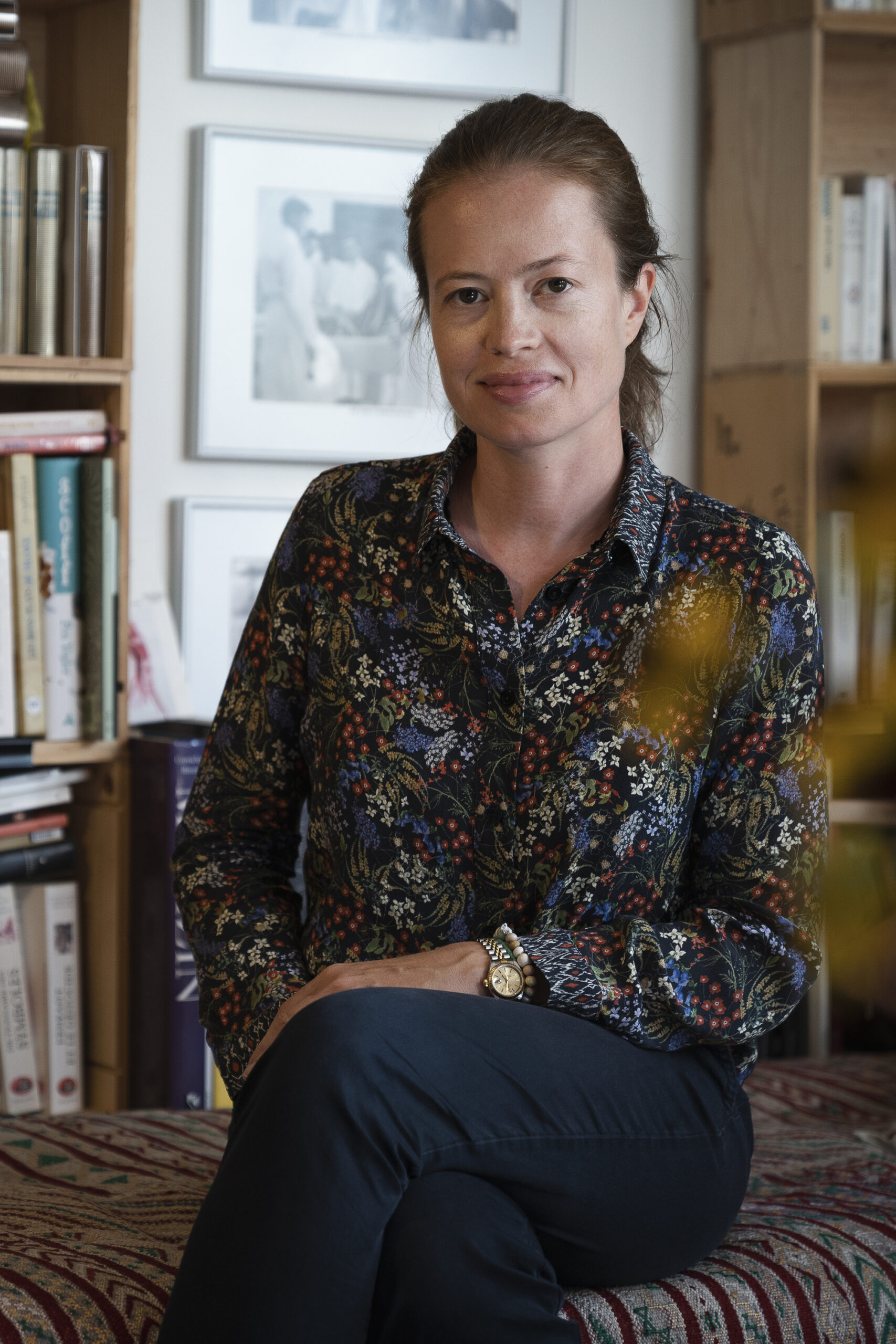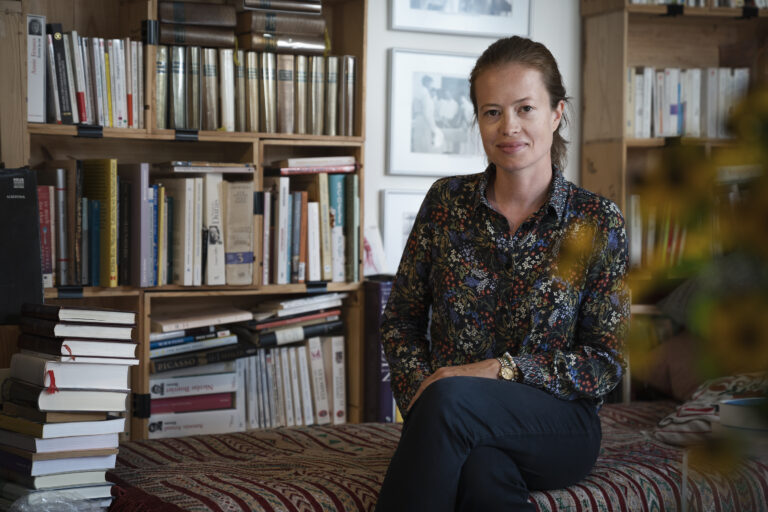Anna Elsner studies how literature addresses and shapes the role of dying in society. Her innovative work has earned her the Swiss National Science Foundation’s Marie Heim-Vögtlin Prize for 2022.
Literature has always been concerned with the end of life. Michel de Montaigne, for example, reflected on it as early as the 16th century. But to the French philosopher, dying per se represented no more than a few brief moments of terror. Today, dying is prolonged. Many of us have much more time to think about it. Moreover, death usually takes place in a medical context and thus embeds individual stories of suffering in a larger framework.

Putting dying into words
Based on French narratives going back to the 1970s, Anna Elsner has examined how literature addresses the changing role of dying and palliative care in society. And she asks whether writing itself might become a palliative practice. For her work at the intersection of French literature and culture, philosophy and medicine, Elsner has been awarded the Marie Heim-Vögtlin Prize by the Swiss National Science Foundation (SNSF). The CHF 25,000 award is being presented for the 14th time this year. The award ceremony will take place in St. Gallen on 19 December 2022.
“Literary exploration of dying goes beyond individual suffering,” says Elsner, a researcher at the University of St. Gallen. “It is always also about societal and social issues.”
For example, the autobiographical texts that Elsner analysed in the course of her SNSF grant also critique the medicalisation and increasing bureaucratisation of palliative care (*1). Socially, the expectation of a good death prevails, she adds, as if we have to make a success of dying.
“That the end may also be painful or bad has little place in our thinking.” In her work, Elsner shows that contemporary literature is creatively reclaiming the exploration of painful experiences (*2).
Rethinking the definition of academic success
In 1874 Marie Heim-Vögtlin became Switzerland’s first female physician. Nonetheless, she was determined to have both children and a career. This combination is still unusual today, says Elsner, which makes the prize all the more meaningful to her. Many things still need to change for parents in research, she says.
“It’s not just about no longer scheduling seminars at 5 p.m.,” says Elsner, whose children are now 6 and 9. “We need to fundamentally rethink our male-centred definition of success.”
Indeed, she says, success is still measured much more in terms of publications and research grants than, for example, teaching, student support or involvement in university life. In other words, areas that involve care and are often undervalued because they are traditionally female domains.
“The research routine ought to be able to accommodate children,” says Elsner. She was strongly influenced in this regard by her years as a student at St. Hilda’s College in Oxford, which at the time only admitted women. “It was perfectly normal for a mother to breastfeed her baby during a tutorial or for a seminar to be postponed because a lecturer’s child was ill,” she recalls. “The question of whether science and family could be reconciled didn’t even occur to me at the time.”
Euthanasia and assisted suicide in literature and film
Since 2020, Elsner has been an assistant professor of French literature and culture at the University of St. Gallen. In early 2022, she was awarded an ERC Starting Grant by the European Research Council to investigate the role of euthanasia and assisted suicide in literature, film and law.
(*1) A. M. Elsner: Extending the domain of care in Philippe Forest. Australian Journal of French Studies (2020).
DOI: https://doi.org/10.3828/AJFS.2020.30
(*2) A. M. Elsner: Frédéric Badré’s La grande santé: Palliation as literary practice?. L’Ésprit Créateur (2021).
DOI: https://doi.org/10.1353/esp.2021.0006

Press release from the Swiss National Science Foundation



